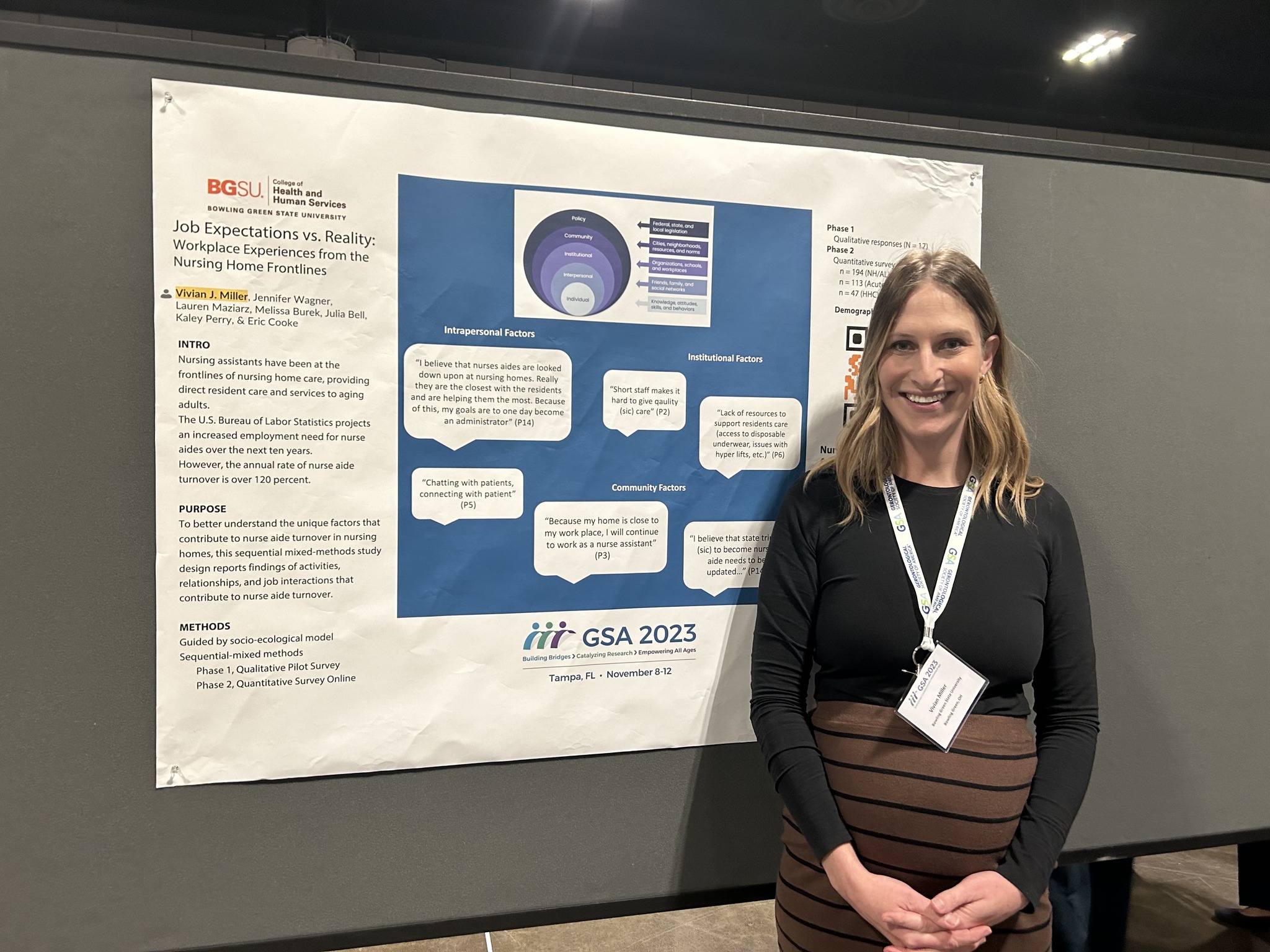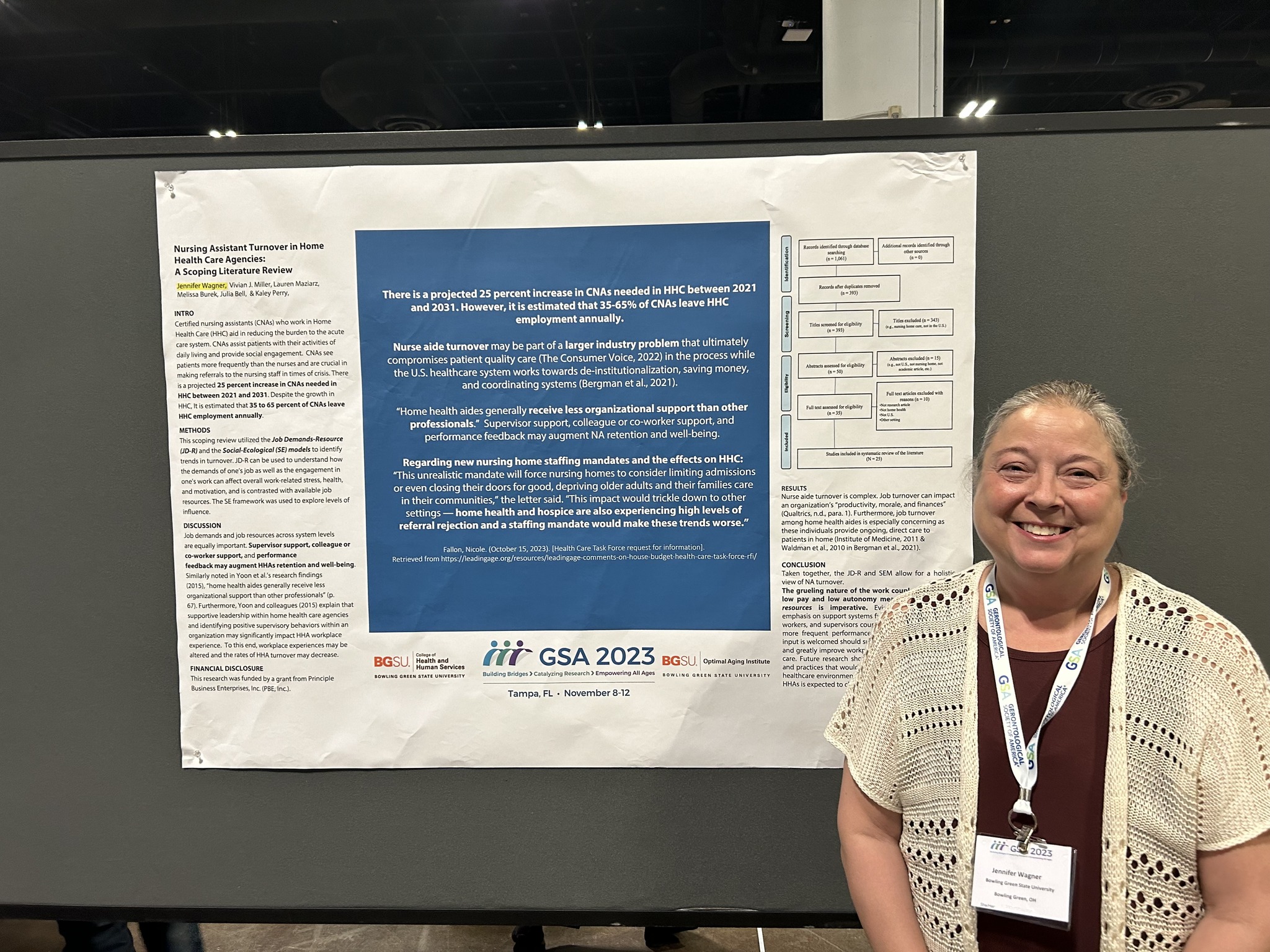
OAI Faculty Presents Research on Nursing Assistant Turnover at National Conference in Tampa
Estimated Reading Time:
Nov.17, 2023
BGSU faculty Dr. Vivian Miller and Jennifer Wagner presented three research posters highlighting nursing assistant turnover in long-term care, home care, and acute care. Other collaborators were Dr. Lauren Maziarz, Dr. Melissa Burek, and graduate assistants Julia Bell and Kaley Perry. This research received funding from Principle Business Enterprises, located in Bowling Green, Ohio.
Nursing assistants have a demanding and rewarding job
Many studies focus on nursing assistants (NAs) and their impact on care. However, most research on nurse aide turnover uses national datasets, like those from the Centers for Medicare and Medicaid. Our study aimed to explore what causes high turnover rates among NAs in direct care. This research used a socioecological model (Bronfenbrenner, 1979; McLeroy, 1988) and the job-demands resource model (Demerouti et al., 2001). It looked at factors linked to workplace turnover. The study focused on enjoyable and less enjoyable aspects, like activities and workplace relationships. Some of the least enjoyable tasks of an NA include: The job is physically demanding; there may not be enough supplies or staff to provide care; pay is low and there is little autonomy. The most enjoyable aspect of NA work is getting to know the patients, making a personal connection, making a difference and seeing patients recover.


What led OAI to conduct NA research on turnover?
During and after COVID-19, LTC saw an increase in nursing home administrator (NHA) turnover. So, in 2022, Dr Vivian Miller, Jennfier Wagner, Dr. Susanny Beltran from the University of Central Florida and her research assistant Lainey Dorris studied NHA turnover. Why would the NHA, the person responsible for overseeing personnel and operating a facility, leave the profession? These findings were presented at the Gerontological Society of America Conference 2022 in Denver, Colorado.
Reasons for NHA and NA turnover have similarities
Staffing shortages, supply issues, increased workload, emotional stress, media portrayal of LTC and lack of preparedness for the pandemic are contributing factors to NHA turnover. The NHA responses are very similar to those made by the NAs in the above study. Positive outcomes of the pandemic that were reported by NHAs was that they feel better prepared for future large scale infectious outbreaks. They also indicated that they have identified and partnered with local public health resources.
Updated: 10/09/2025 03:49PM
